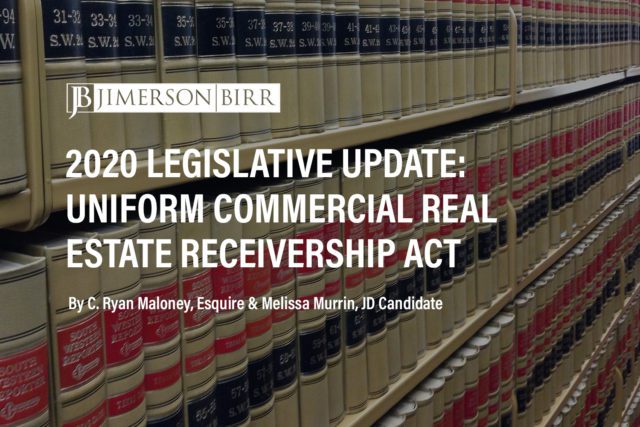What does the receivership process encompass?
Receiverships, a legal remedy in the context of Florida law, involve court-appointed individuals or entities that take control of and manage property or businesses to protect the interests of various parties. For example, the court typically appoints a receiver when a company is insolvent or in fraud, mismanagement, or waste cases.
Receiverships protect the interests of creditors, shareholders, and other stakeholders, ensuring proper management and disposition of the property or business. Courts evaluate requests for receiverships by considering factors like the likelihood of irreparable harm, inadequate remedies at law, and the balance of hardships between the parties.
Need a receivership advocate? Schedule your consultation today with a top receivership attorney.
Which laws, rules, and regulations apply to receiverships?
Florida receiverships follow state and federal laws, regulations, and court decisions. At the state level, Florida Rules of Civil Procedure Rule 1.620 lays out the procedural requirements for the appointment of a receiver. Additionally, the Florida Statutes provide a framework for the selection and powers of receivers in various contexts, including the following legal situations:
In addition to state law, federal statutes and regulations, such as the Bankruptcy Code and the Federal Rules of Civil Procedure Rule 66, can also apply to receiverships in certain circumstances.
Moreover, case law from Florida and federal courts further and continuously shapes the receivership landscape, guiding receivers’ appointments, powers, and duties in specific factual scenarios.
How does providing full-service representation of owners, claimants, and receivers connect to the receivership process?
In receivership matters, full-service representation refers to an attorney’s comprehensive handling of legal issues concerning owners, claimants, and receivers. Federal and Florida laws dictate each party’s roles, responsibilities, and rights. More specifically, full-service representation encompasses tasks such as guiding receivers in their fiduciary duties, protecting the interests of claimants, and defending owners’ rights.
For example, under Florida law, a court-appointed receiver may require legal representation to ensure proper administration of the debtor’s assets while protecting themselves from potential liabilities. The legal counsel can also help the receiver sell assets, resolve claims, and distribute the proceeds among the claimants.
How can poor receivership management lead to risk exposure?
The following issues related to receiverships commonly lead to litigation:
- Breach of fiduciary duty: Receivers must act in the best interests of the parties involved, and failure to do so can result in legal liability.
- Improper asset management: Receivers must manage the property or business effectively to preserve its value. Inadequate or negligent management can lead to legal risks.
- Violations of statutory or regulatory requirements: Receivers must comply with all applicable federal and state laws and regulations. Non-compliance may expose them to legal consequences.
- Conflicts of interest: Receivers must avoid conflicts that could compromise their impartiality or adversely affect the receivership process.
- Improper disposition of assets: Receivers must ensure that they conduct the sale, distribution, or transfer of assets appropriately and fairly. Failure to do so may result in legal liability.
- Fraud or misrepresentation: Receivers who engage in fraudulent activities or make misrepresentations during the receivership process can face legal consequences.
When a set of facts is appropriate for legal advocacy or intervention, there are many paths a claimant may take. We are value-based attorneys at Jimerson Birr, which means we look at each action with our clients from the point of view of costs and benefits while reducing liability. Then, based on our client’s objectives, we chart a path to seek appropriate remedies.
To determine whether your unique situation may necessitate litigation or another form of specialized advocacy, please contact our office to set up your initial consultation.
What measures should legal counsel take to provide full-service representation of owners, claimants, and receivers, and how do clients strategically benefit?
Counsel should consider the following to protect their clients:
To provide effective full-service representation, attorneys should:
- Review relevant laws and regulations: Familiarize themselves with federal and Florida receivership laws, rules of procedure, and court orders to ensure compliance.
- Develop a tailored strategy: Formulate a plan to address the unique needs of each client, whether they are an owner, claimant, or receiver.
- Communicate with clients: Maintain open lines of communication to keep clients informed and address their concerns throughout the receivership process.
- Negotiate settlements: Advocate for clients’ best interests by negotiating with opposing parties and working towards favorable resolutions.
- Litigate disputes: Represent clients in court if necessary, presenting strong arguments to support their position.
Strategic benefits for clients include:
- Efficient management of legal matters: Comprehensive representation streamlines the legal process, saving clients time and resources.
- Risk mitigation: Attorneys can help clients navigate potential legal pitfalls, reducing the likelihood of adverse outcomes.
- Protection of interests: Full-service representation ensures clients’ rights are upheld throughout the receivership process.
- Increased chances of favorable outcomes: A skilled attorney can negotiate and litigate effectively, maximizing the opportunities for a positive result.
Please contact our office to schedule your initial consultation and determine what legal advocacy and protection may be available for your unique situation.
Frequently Asked Questions
- What are the primary responsibilities of a receiver?
A receiver’s primary responsibilities include taking control of the debtor’s property, preserving assets, investigating the debtor’s financial affairs, and ultimately distributing the property or proceeds to creditors.
2. How do federal and Florida receivership laws differ?
While both federal and Florida receivership laws govern the appointment, powers, and duties of receivers, there may be differences in specific provisions and procedures. For example, Florida’s receivership statute focuses on state court receiverships, while federal law typically applies to cases with a national scope or those involving federal agencies.
3. Can an owner contest the appointment of a receiver?
Yes, an owner may contest the appointment of a receiver. Legal counsel can assist in presenting arguments to challenge the necessity of a receivership, the proposed receiver’s qualifications, or the receivership order’s terms.
Have more questions about receiverships?
Crucially, this overview of providing full-service representation of owners, claimants, and receivers does not begin to cover all the laws implicated by this issue or the factors that may compel the application of such laws. Every case is unique, and the laws can produce different outcomes depending on the individual circumstances.
Jimerson Birr attorneys guide our clients to help make informed decisions while ensuring their rights are respected and protected. Our lawyers are highly trained and experienced in the nuances of the law, so they can accurately interpret statutes and case law and holistically prepare individuals or companies for their legal endeavors. Through this intense personal investment and advocacy, our lawyers will help resolve the issue’s complicated legal problems efficiently and effectively.
Having a Jimerson Birr attorney on your side means securing a team of seasoned, multi-dimensional, cross-functional legal professionals. Whether it is a transaction, an operational issue, a regulatory challenge, or a contested legal predicament that may require court intervention, we remain tireless advocates at every step. Being a value-added law firm means putting the client at the forefront of everything we do. We use our experience to help our clients navigate even the most complex problems and come out the other side triumphant.
If you want to understand your case, the merits of your claim or defense, potential monetary awards, or the amount of exposure you face, you should speak with a qualified Jimerson Birr lawyer. Our experienced team of attorneys is here to help. Call Jimerson Birr at (904) 389-0050 or use the contact form to schedule a consultation.


We live by our 7 Superior Service Commitments
- Conferring Client-Defined Value
- Efficient and Cost-Effective
- Accessibility
- Delivering an Experience While Delivering Results
- Meaningful and Enduring Partnership
- Exceptional Communication Based Upon Listening
- Accountability to Goals











